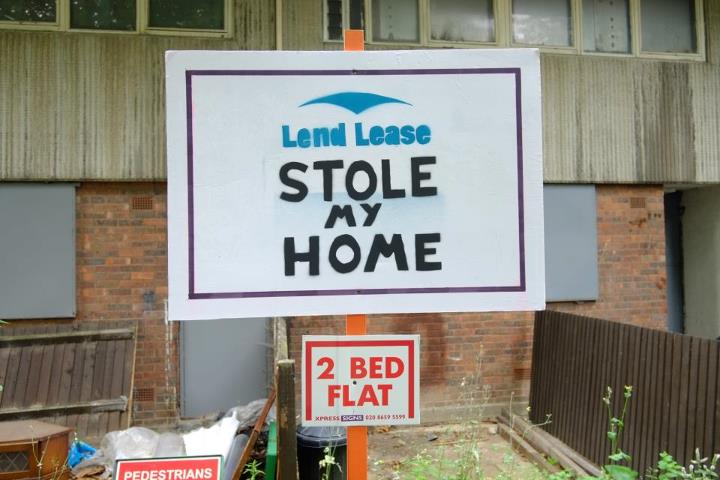The Compulsory Purchase of the remaining 3 leaseholders on the Heygate estate has been approved by Eric Pickles, the Secretary of State for Communities and Local Government. This will allow Southwark Council to buy out the properties at way below the local market rate.
“We are being short-changed and priced out of the area.”
“I am being offered just £150,000 for my two-bed flat, when the new-build two-bed Heygate flats are currently being marketed overseas for upwards of £455,000.”
 It is not surprising that Mr Pickles approved Southwark’s application. The decision is taken on the basis that the estate is now empty and takes little account that it was once the home to 3,000 people. Mr Pickles decided that it was in the public interest for the development to proceed rather than to allow the leaseholders to keep their homes. The leaseholders’ responses can be seen in this BBC report.
It is not surprising that Mr Pickles approved Southwark’s application. The decision is taken on the basis that the estate is now empty and takes little account that it was once the home to 3,000 people. Mr Pickles decided that it was in the public interest for the development to proceed rather than to allow the leaseholders to keep their homes. The leaseholders’ responses can be seen in this BBC report.
The decision was the result of a 4 day public inquiry in February this year. Some points in Inspector Wenda Fabian’s conclusions are worth noting:
She says “The quantity of the social rented accommodation on the site of the former estate would be dramatically reduced, some 71 units compared to the 750 formerly existing.” The Inspector goes on to note that the ‘affordable’ rented homes would be provided at higher levels of rent than were current on the estate.
She also says that the evidence given by various academics (Prof. Loretta Lees - King’s College, Michael Edwards - UCL, Mara Ferreri - Queen Mary University) were a “matter of wider social policy consideration”, rather than a particular consideration for the inquiry. This evidence showed that regeneration schemes displace those people whose deprivation was the justification for the regeneration, and that low-income residents do not benefit from mixed communities - they lose the economic and social advantages of living in a low-income communitiy.
The Inspector addressed the vexed question of the scheme’s financial viability. She noted that “although commercially sensitive viability figures were not produced for the Inquiry”, she did not doubt that Lend Lease would fulfil its commitments because “the reputational consequence for Lend Lease of a market failure on this site so close to the City of London would be substantial”.
In relation to viability, the Inspector allowed the need for 616 new car parking spaces despite the requirements set out in policy that there should be none.
The Inspector had little doubt that the shopping centre situation can be resolved. She says “its regeneration by the current owner is still feasible and Lend Lease is cooperating in the redevelopment project discussions on this basis.” Since it has been just been reported that the owners of the shopping centre are now considering its sale unless Southwark approves its development plans (so far resisted), it remains to be seen whether this confidence is justified.
What Next?
The council will now write to the objectors and inform them of the decision. After two months, ownership of the homes will transfer to Southwark Council.
The council will then serve a further notice and occupants will have 28 days to vacate the property. If they do not do so, the council is entitled to take steps to gain possession.
Following vacant possession, leaseholders will then finally have the opportunity to refer the valuation of their homes to a Lands Tribunal if they still disagree with Southwark’s offer of compensation.
